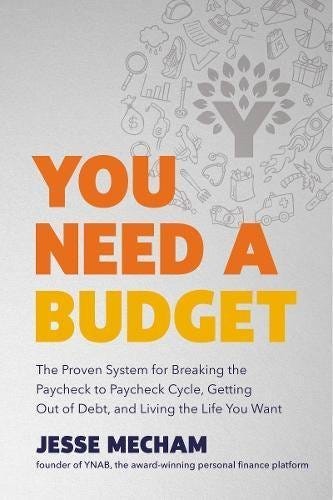Book Club #1
Realizing we're not brains in vats, how to make friends as an adult, how people change their minds, why and how to budget, reasons not to travel, and wondering like a child
More good stuff from Aeon.
“The sort of scientist-at-a-distance treatment that we get in psychiatry or CBT, for example, not only becomes a fantasy from a relational-intersubjective standpoint, but something that enacts this very individualism. Indeed, the very idea of privileged, disengaged knowledge about another’s ‘internal world’ creates a sharp power imbalance. It also inevitably ends up locating the problem in the individual, creating the very separation it presupposes. From the relational-intersubjective standpoint, both the therapist and the context/system are unavoidably a part of the very experiences that become pathologised as ‘individual disorders’.”
This article reminded me of something a friend who studied communication once told me — that he wondered how much of our memories are stored in our relationships rather than our brains.
It took a while, but that's finally sinking in — we're not brains in vats, and perhaps we should stop treating people (and ourselves) as if we were.Aeon's companion Psyche is also full of gems. Here's how to make friends as an adult: assume people will like you; show up (and say 'hello'); let your guard down; follow up and iterate. It takes time, but it seems to work!
The Conspiracy Theorist Who Changed His Mind tells the fascinating story of a 9/11 truther who changed his mind after visiting Ground Zero to meet architects, engineers, and relatives of the dead. Spoiler: it wasn't because of all the evidence he was confronted with!
I was sent a few copies of You Need a Budget, by Jesse Mecham, as a graduation gift from the YNAB Coaching Certificate Program last year, and I finally sat down to read it (it was not required reading for the program).
As far as learning the method goes, the material on their website is a lot better and more up-to-date than the book — it's also available for free and in various formats — videos, blog posts, comprehensive guides, self-paced courses, live Q&As, etc.
Still, I enjoyed learning more about the founder's story, how he arrived at the method’s four principles, and how he came to some of his (sometimes counterintuitive) conclusions — for example, why he decided not to save for his kid's college education. He tells the story of a collaborator who's made the same decision:
”Plus, what if two of their kids get scholarships while the other decides he wants to start a business instead of going to college right away? They would have missed out on the life experiences that Todd and his family feel are so important. So while she doesn't have a lump of college savings in her name, Todd's daughter Sadie got to visit a boulangerie every day and buy bread for her family, on her own, in a language she'd been learning for just a few months. The whole family got the daily opportunity to be in different surroundings, with different foods, different ways of living and getting around, and different expectations. They got to see that the world isn't the same as their small town in Massachusetts. The family couldn't have had that experience and put thousands in a college fund that summer. So they happily chose their one priority for that money.”
Jesse plans to help his children (who might want to) go to college fund their education “via a blend of scholarships, budgeting, and working while in school.” Rather than projecting the anxiety that going to the most reputable college is necessary for well-being later in life, he's teaching his kids to navigate trade-offs, take risks and responsibility, and make their own choices.
Integrating the reflections on his podcast, I reckon Jesse is not a shallow person. I was fascinated to hear in that particular bit that he's also been inspired by Oliver Burkeman's Four Thousand Weeks: Time Management for Mortals — that's the book I'm currently listening to (and I'll likely have lots to share about it next time):
“[M]aybe, pushing against that default programming, (…) pursue nothing, and see what happens, and maybe nothing happens, and maybe that's the whole point.”
I'm grateful for the abundance of secondhand bookshops in our big cities in Brazil — books here have always been expensive. I used to stop by one of those sebos on my way back from school pretty much every week, and I was happy to find out last year, upon resettling in the country after 14 years living abroad, that they're still thriving.
I enjoy the process of picking the books I'll bring home — to set aside an afternoon, choose a couple of shops I haven't visited in a while, walk in with an author, a topic, or nothing in particular in mind, read the titles of every single book in the corresponding section, draw a bunch of them from the shelves, sit awkwardly on the floor, then spend the next hour or so killing someone else's darlings.
I also enjoy that those books have belonged to other people before — there are often highlights, margin notes, the previous owner's name, or a dedication. I assume most of them come from people living (or having recently died) not far from me, and I find the evidence that we share so many interests and perspectives somewhat comforting.
Of course, sometimes you go home with a terrible book, which was the case with this one. Um Lugar na Janela: Relatos de Viagem roughly translates into “A Window Seat: Travel Stories,” by Martha Medeiros. She eventually complained about the English skills of a girl at the information desk of an airport in Tokyo, and that's where I draw the line.
That's alright though — it's prompted this reflection. Reading a bad book reminds me of how much I miss going home after school on Friday with my two best friends, swinging by the video shop, and having each of us choose one of the three movies we'd watch that weekend — I didn't always like the movies they chose or even the one I selected, but I always enjoyed our weekends together. It's a welcome feeling of inconvenience that seems increasingly harder to inhabit these days.
Last month I also read Ei! Tem Alguém Aí?, by Jostein Gaarder, in Portuguese. It's been published in English as Hello? Is Anybody There? and also translated into several other languages from the Norwegian original
I found this book at a bus stop in Brasília, and I was duly intrigued by the synopsis on the back cover:
“Mika has fallen out of his spaceship and landed upside down in an apple tree in Joe's garden. It's hard to say which of them is more surprised, Joe or Mika. But as they talk they discover how alike they are, and begin to work out where they both come from and how life began.“
This should be a worthwhile read for a child with curious parents willing to engage with them in the questions it might elicit. So, astronauts flew up to the Moon, then descended on it — is the ground up or down, after all, and where does the switch happen?
If you find such questions silly, I'm afraid you might take your experience for granted. These questions are not foolish and need not be paralyzing, either. We can both make arbitrary decisions and be conscious of their arbitrariness along the way.
How about you?
Have you read, watched, or listened to anything interesting you'd like to share lately? I'd love to know!






